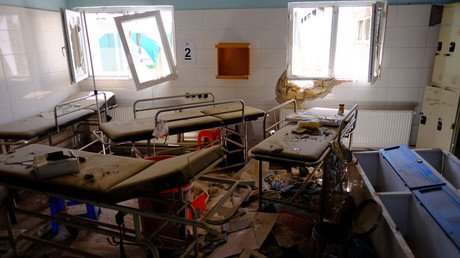Soldiers who killed pregnant Afghan women followed rules of engagement – Pentagon
Members of US Special Forces who killed two pregnant women and three other civilians during a 2010 night raid in Afghanistan used an “appropriate level of force,” according to an internal Pentagon investigation.
In February 2010, a force of US Army Rangers had entered a compound in the village of Khataba in Afghanistan’s Paktia province. Though the site had been confirmed to house “militant activity,” according to NATO, the raid resulted in the death of five civilians, two of whom were pregnant women.
Documents obtained by The Intercept and published on Wednesday show that the soldiers in question faced no disciplinary action for the raid.
Initial reports by US military officials said that the victims had been found “tied up, gagged and killed” by the insurgents, but this story was called into question by survivors and Afghan investigators, who allege that soldiers dug bullets out of the victims’ bodies.
While an internal investigation by the US military never accepted that attempts at a cover-up occurred, it did admit that the civilians were killed by the military.
“It is undeniable that five innocent people were killed and two innocent men were wounded.” https://t.co/T770j2cwcTpic.twitter.com/S6GU7i3JEB
— The Intercept (@theintercept) June 1, 2016
The documents show that the investigation did note that the Afghan investigation conducted immediately after the raid “reports that an American bullet was found in the body of one of the dead women, but it does not say how that bullet was found or who removed it from the woman.”
The compound was housing a family’s celebration of the naming of a newborn child, with more than 25 guests being present at the night of the raid.
Investigators did ask if anyone altered, cleaned or tampered with the scene, but any answer that may have be given was redacted, the documents show.
The internal investigation also showed that initial US military reports that the women were "tied up, gagged and killed” were false due to the ground forces’ lack of cultural awareness of Afghan burial customs, which involves binding the feet and head, rather than an attempt to mislead higher-ups. It claims they were “confused by the unfamiliar sight of the women prepared so quickly for burial and firmly believed that they did not kill the three women.”
The documents show that US forces had originally said that the women were killed up to two days before the firefight with insurgents occurred, but investigators found that the women’s bodies were found side-by-side with the militants who were killed in action, indicating that they were killed during the raid. The report asked “Was this an attempt to deceive?” but no unredacted answer was given by the documents.
The investigation found that disciplinary action against the soldiers would not be appropriate, because the soldiers involved in the incident followed the rules of engagement during the raid, even though there were “tactical mistakes [that were] made.” The report recommended that forces in Afghanistan “make an appropriate condolence payment to the family as a sign of good faith in our sincerity at the seriousness of the incident.”
The Army Rangers force that participated raid was from a base in another province, rather than the local base in Paktia, the report revealed. A letter accompanying the documents released to The Intercept stated that some information could not be released because it would expose communications between agencies, leaving questions open about what other agencies provided the military with the intelligence that led to the botched raid.
The documents’ release comes only a month after a final US report was made on the October 2015 airstrike on a Medecins Sans Frontieres (MSF) humanitarian hospital in Kunduz, Afghanistan that resulted in the death of at least 42 people. While MSF said that the strike constituted a war crime because the hospital’s location was known beforehand, the US military said that incident did not amount to a war crime because the hospital was not attacked deliberately.













